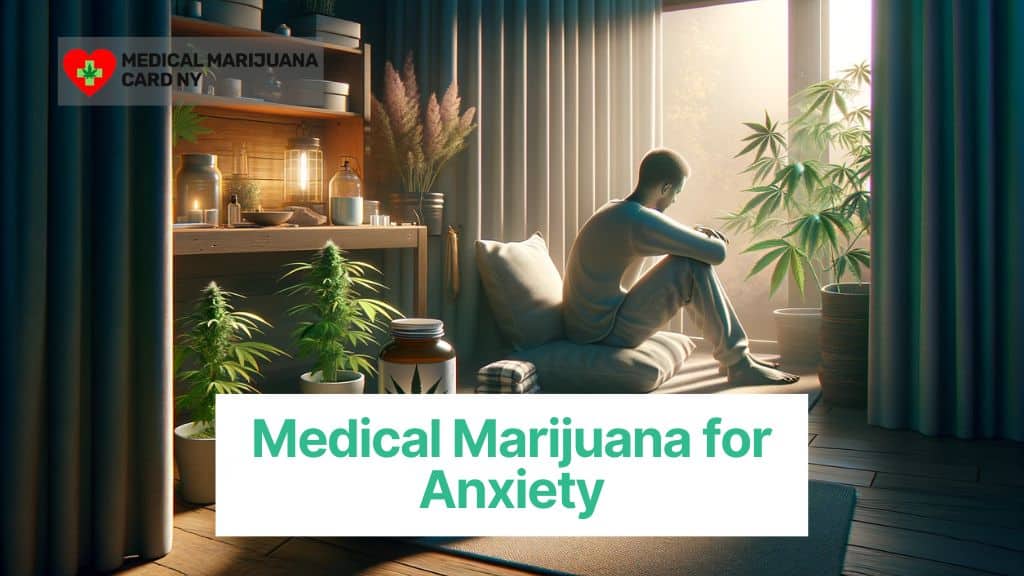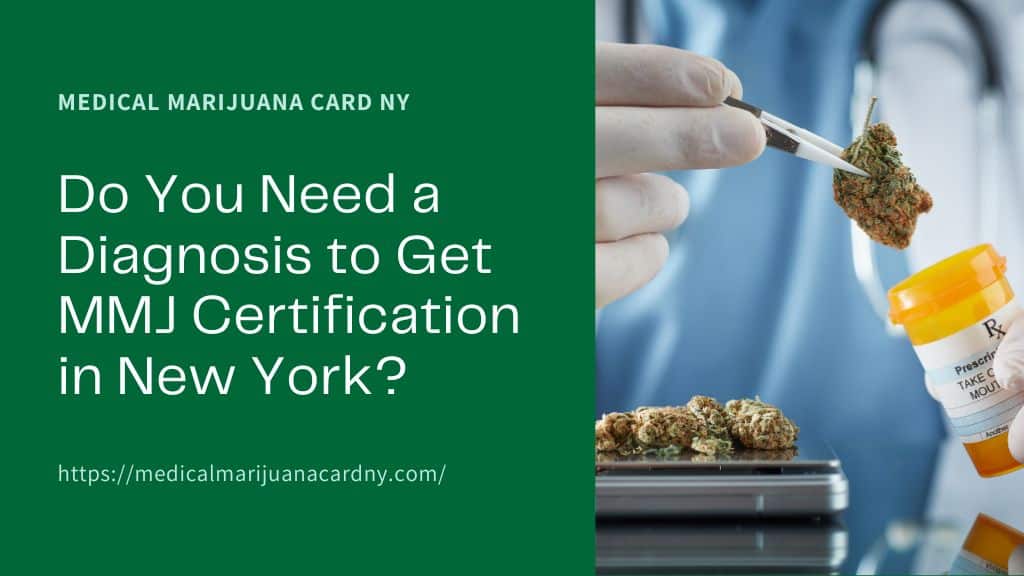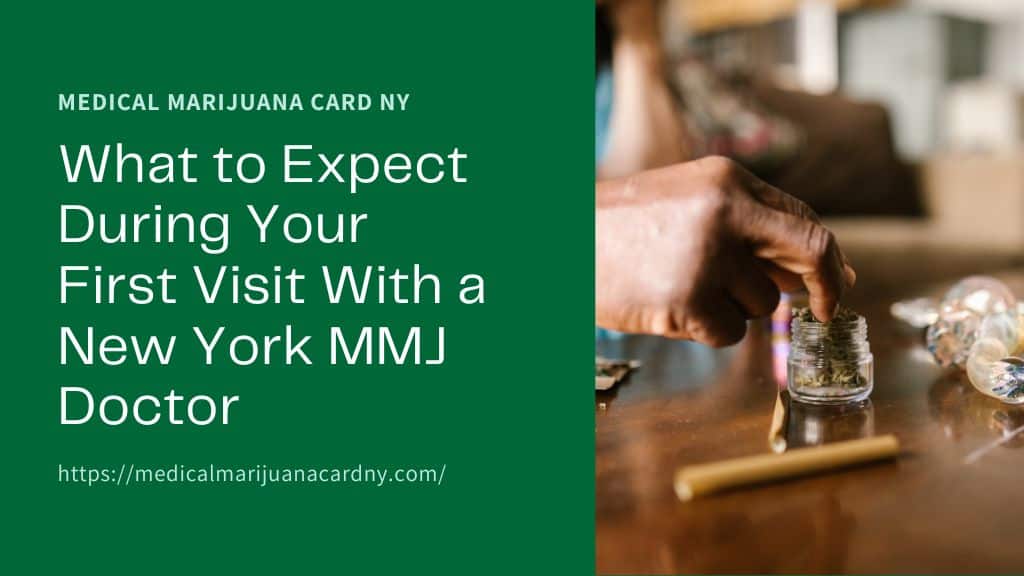Anxiety, a pervasive and often debilitating condition, affects millions worldwide, manifesting in a spectrum of symptoms that can profoundly impact daily life. In our quest to find effective management strategies, one potential solution has sparked considerable interest and debate: Medical Marijuana. This blog delves into the intriguing intersection of medical marijuana and anxiety relief, a topic especially relevant in our fast-paced, stress-laden world.
As we navigate through the complexities and nuances of using medical marijuana for anxiety, this blog offers a comprehensive exploration, backed by scientific research and expert opinions. Whether you’re someone grappling with anxiety, a caregiver, or just curious about the potential therapeutic benefits of medical marijuana, this blog promises to provide enlightening insights.
We’ll journey through the legal landscape, particularly focusing on the evolving policies surrounding medical marijuana. Moreover, we’ll address crucial questions about its efficacy, safety, and how it compares with traditional anxiety treatments. Our goal is not just to inform but also to empower you with knowledge, enabling informed decisions about your or your loved ones’ health and well-being.
Join us as we unravel the potential of medical marijuana in managing anxiety, a topic that resonates with many yet remains shrouded in mystery and misinformation. Your journey towards understanding and possibly finding relief starts here.
Table of Contents
Toggle- What Is Anxiety and How Does It Affect Individuals?
- How Can Anxiety Be Traditionally Managed?
- What Are the Psychological Impacts of Anxiety?
- Why Is It Important to Address Anxiety Early?
- Who Is Most At Risk for Developing Anxiety?
- Can Alternative Therapies Be Effective for Anxiety?
- How Can Medical Marijuana Help with Anxiety?
- What Are the Legal Guidelines for Using Medical Marijuana for Anxiety in New York?
- Who Qualifies for Medical Marijuana for Anxiety in New York?
- Where Can Patients Access Medical Marijuana in New York?
- Can Medical Marijuana Interact with Other Anxiety Medications?
- Conclusion
What Is Anxiety and How Does It Affect Individuals?
Anxiety is a common emotional state characterized by feelings of tension, worried thoughts, and physical changes like increased blood pressure. Occasional anxiety is a natural part of life, but anxiety disorders are more severe, involving excessive worry or fear that doesn’t go away and can worsen over time. These disorders can significantly interfere with daily activities such as job performance, school work, and relationships.
The symptoms of anxiety disorders can vary depending on the specific type. Generalized anxiety disorder (GAD), for example, involves persistent, excessive worry that disrupts daily life. Panic disorder is marked by frequent and intense panic attacks, while social anxiety disorder involves an overwhelming fear of being judged in social situations. There are also various phobia-related disorders, each characterized by intense fear or aversion to specific objects or situations.
How Can Anxiety Be Traditionally Managed?
Traditionally, anxiety disorders are treated with psychotherapy, medication, or a combination of both. Cognitive Behavioral Therapy (CBT) is a highly effective form of psychotherapy that helps individuals change their thought patterns and reactions to reduce anxiety. Medications, including antidepressants and anti-anxiety medications like benzodiazepines, can also help manage symptoms. It’s important to note that medication doesn’t cure anxiety disorders but can help relieve symptoms.
What Are the Psychological Impacts of Anxiety?
The psychological impacts of anxiety can be far-reaching and profound. Chronic anxiety can lead to disturbances in sleep, concentration, and overall mental well-being. It can also increase the risk of developing other mental health disorders, such as depression. The constant state of worry and fear can significantly impair an individual’s ability to function in daily life, affecting work, school, and personal relationships.
Anxiety disorders are the most common mental disorders in the United States. According to the National Institute of Mental Health (NIMH), an estimated 19.1% of U.S. adults had an anxiety disorder in the past year, with a higher prevalence among females (23.4%) than males (14.3%). The lifetime prevalence of anxiety disorders in U.S. adults is estimated at 31.1%. Moreover, anxiety impacts different demographic groups differently, with varying prevalence rates among different age groups, races, and people with disabilities.
Why Is It Important to Address Anxiety Early?
Addressing anxiety early is critical due to its potentially profound impact on various aspects of life, including academic performance, social interactions, and overall mental health. When anxiety is not addressed in its initial stages, it can lead to more severe conditions such as depression and substance-use problems. Moreover, anxiety disorders become more challenging to treat as they become more entrenched.
Early intervention aims to reduce risk and build resilience by equipping individuals, especially children, with tools to face and effectively manage their fears. Interventions vary depending on the age and severity of the symptoms, but commonly involve a combination of education, medication, and therapy like Cognitive Behavioral Therapy (CBT).
Without early intervention, anxiety can lead to social isolation, poor academic performance, and even more severe mental health issues later in life.
Who Is Most At Risk for Developing Anxiety?
Several factors contribute to the risk of developing anxiety disorders. These include:
- Genetics and Family History: Having family members with a history of anxiety or other mental disorders can increase the likelihood of developing anxiety disorders.
- Personality Traits: Individuals who are more prone to shyness or nervousness, especially in new situations or during childhood, may be at higher risk.
- Exposure to Stressful Life Events: Traumatic or negative life events, such as abuse, the death of a loved one, or a significant life change, can trigger anxiety disorders.
- Underlying Health Conditions: Certain physical health conditions, like thyroid issues or heart arrhythmias, can produce or exacerbate anxiety symptoms.
- Substance Use: The use of caffeine, certain medications, or recreational drugs can also contribute to the development of anxiety symptoms.
Can Alternative Therapies Be Effective for Anxiety?
Alternative therapies can be effective in managing anxiety, often used in conjunction with traditional treatments. These therapies include mindfulness, meditation, yoga, and acupuncture. Mindfulness and meditation focus on bringing awareness to the present moment, helping to reduce stress and anxiety levels. Yoga combines physical postures, breathing exercises, and meditation to improve mental and physical health. Acupuncture, a traditional Chinese medicine practice, involves inserting thin needles into specific points on the body, believed to rebalance energy flow and alleviate anxiety symptoms.
While these therapies can be beneficial, they are usually most effective when part of a comprehensive treatment plan that may include psychotherapy, medication, and lifestyle changes. It’s important for individuals to consult with healthcare professionals before starting any new treatment to ensure it’s appropriate for their specific needs and conditions.
How Can Medical Marijuana Help with Anxiety?
Medical marijuana has been gaining attention as a potential treatment for anxiety. The compounds found in marijuana, particularly cannabidiol (CBD) and delta-9-tetrahydrocannabinol (THC), interact with the body’s endocannabinoid system, which plays a role in regulating mood and stress resilience. This interaction is a key reason why medical marijuana might be effective for anxiety disorders.
Research suggests that CBD may have significant anti-anxiety effects. It is thought to help reduce anxiety symptoms by altering brain chemistry similarly to traditional anti-anxiety medications. Studies have found that CBD can aid in reducing symptoms of several types of anxiety disorders, including generalized anxiety disorder (GAD), post-traumatic stress disorder (PTSD), and social anxiety disorder (SAD). CBD may interact with serotonin receptors in the brain, known to regulate mood and anxiety, potentially reducing anxiety levels.
However, the efficacy of medical marijuana in treating anxiety is still a subject of ongoing research. Some studies have shown inconsistencies, and while large-scale surveys suggest effectiveness in reducing anxiety, clinical trial results have been equivocal. The lack of standardized dosing and potential legal restrictions also pose challenges for those seeking treatment with medical marijuana.
What Are the Legal Guidelines for Using Medical Marijuana for Anxiety in New York?
As of March 2023, New York’s approach to medical marijuana for conditions like anxiety has evolved. The state does not have a list of qualified medical conditions for which medical marijuana can be prescribed. Instead, it’s up to MMJ (Medical Marijuana) doctors to decide if medical marijuana is an appropriate treatment option for a patient. Patients do not require a traditional MMJ card; they only need an MMJ certification. Once they receive this certification, they are automatically registered and given a registration ID number, which they can use to purchase medical marijuana products.
This approach reflects a more personalized and doctor-driven process for the use of medical marijuana in treating conditions such as anxiety. Patients considering medical marijuana for anxiety should consult with a qualified healthcare professional knowledgeable about medical marijuana’s potential benefits and risks. They should also familiarize themselves with the local laws and regulations related to medical marijuana in New York to ensure compliance and proper use.
Please note that the use of medical marijuana, especially for conditions like anxiety, is a complex and evolving area of medicine and law. It’s important to stay informed about the latest research and legal changes and to consult healthcare professionals for personalized advice and treatment options.
Who Qualifies for Medical Marijuana for Anxiety in New York?
In New York, the Office of Cannabis Management (OCM) has removed the requirement for specific medical conditions to qualify for medical marijuana. Since January 24, 2022, licensed doctors in New York can prescribe medical cannabis for any condition if they believe the patient may benefit from its use. This includes anxiety as well as a range of other medical conditions. To qualify for a medical marijuana card, patients must meet certain requirements:
- Residency: The patient must be a resident of New York.
- Age: Patients must be 18 years or older. Minors can qualify with the assistance of a parent or guardian.
- Health Condition: Any condition as certified by a licensed doctor can qualify.
Where Can Patients Access Medical Marijuana in New York?
Patients in New York can access medical marijuana from registered organizations within the state. These organizations are licensed to manufacture, market, and distribute medical cannabis products. The prices of medical cannabis products vary among these organizations and may change over time. Patients should contact these registered organizations directly to obtain final prices and information about any discount programs that might help with the costs of medical cannabis. A list of registered organizations can be found on the Office of Cannabis Management’s website.
Can Medical Marijuana Interact with Other Anxiety Medications?
Medical marijuana can interact with other medications, including those used for treating anxiety. It’s crucial for patients to consult with healthcare professionals before starting medical marijuana, especially if they are already taking other medications for anxiety. The healthcare professional can provide advice on potential drug interactions and guide the patient on safe usage.
Healthcare providers prescribing medical marijuana must complete a specific medical cannabis course approved by the OCM. This ensures they have the necessary knowledge to guide patients in the use of medical marijuana, including understanding its interactions with other medications.
Conclusion
In New York, the landscape for using medical marijuana to treat anxiety has evolved significantly. With the Office of Cannabis Management removing specific qualifying conditions in 2022, licensed healthcare providers now have the discretion to prescribe medical cannabis for any condition they deem appropriate, including anxiety. This flexible approach is tailored to meet individual patient needs, making the treatment more accessible.
Patients seeking medical marijuana for anxiety must consult with a certified healthcare provider and meet certain criteria, including being a resident of New York and of legal age. Access to medical marijuana is available through registered organizations in the state, although it’s crucial for patients to discuss potential interactions with other anxiety medications with their healthcare provider.
This patient-centric approach in New York reflects a progressive stance towards medical marijuana, aiming to provide relief to those suffering from anxiety while ensuring safe and regulated access.
Resources
https://www.nimh.nih.gov/health/topics/anxiety-disorders
https://www.who.int/news-room/fact-sheets/detail/anxiety-disorders
https://www.mayoclinic.org/diseases-conditions/anxiety/symptoms-causes/syc-20350961
https://cfah.org/anxiety-statistics/
https://news.asu.edu/20151110-importance-early-intervention-child-anxiety





